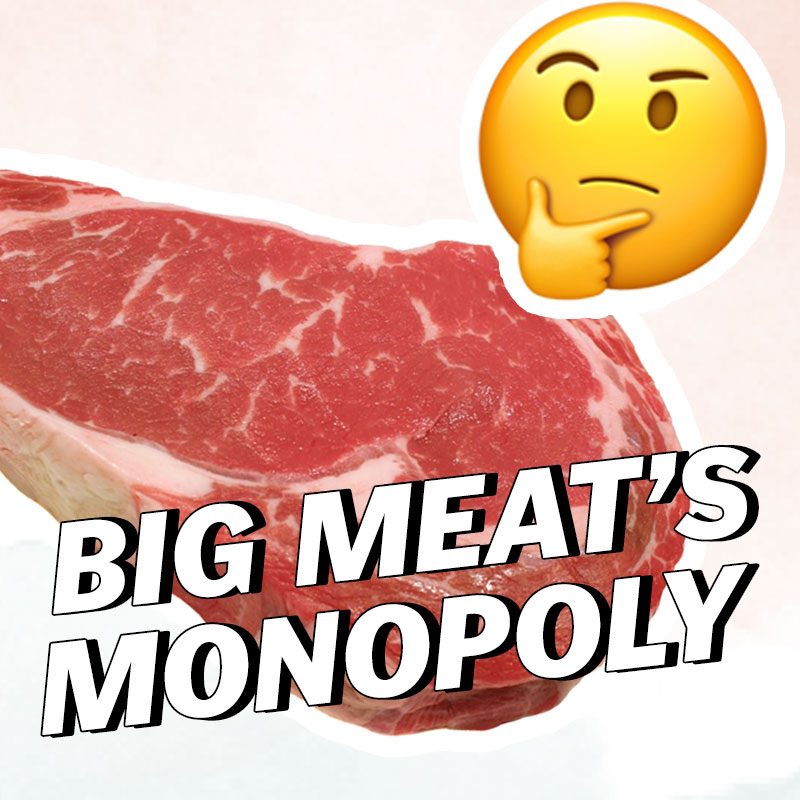How did the meat industry get so massive? In what ways did industrialization change how meat is produced?
This is Meatonomics: the economics of meat production. While many people prefer to imagine the Old MacDonald story with cows grazing on grassland, this is far from the truth. After the introduction of trains, meat production went global. Previously, consumers went to the local butcher, and the butcher got its meat from a local farmer. Now, the meat industry is owned by only a handful of key players, and demand is so high that cows are kept in inhumane conditions.
In 2018, Americans ate an average of 222.2 lbs of meat per person. Farmed animals are injected with growth hormones to meet this demand for meat, and they are genetically bred to grow fatter faster. Over 99% of livestock in the United States are kept in factory farms.
Over the years, the media has played a significant role in popularizing the consumption of meat. Well-known ads like Wendy’s “Where’s the Beef?” have normalized meat consumption, and protein was marketed as the ultimate protein source for many years.
The government helps facilitate the meat industry’s popularity by helping keep costs low. Subsidies are given out to the meat industry, leaving the true cost of meat unknown to the average consumer. Meat also comes with health costs as it has been linked to antibiotic resistance, as well as lifestyle diseases and some forms of cancer. Disease outbreaks such as salmonella and mad cow disease are also attributed to meat consumption.
Meat comes at a cost to the planet. Animal Agriculture is more damaging to the climate than the transportation sector. We could feed the world if we all ate plants instead of feeding it to livestock. The meat lobby is a large presence in Washington D.C. It spends twice as much as the gun control lobby does on lobbying efforts.
Now – the industry is moving rapidly towards plant-based meat. Beyond Meat launched an extremely successful IPO for it’s vegan Beyond Burger. Impossible Foods has launched its burger in Burger King and is backed by many celebrity investors. Meat companies such as Tyson and Smithfield are also entering the plant-based meat market.


